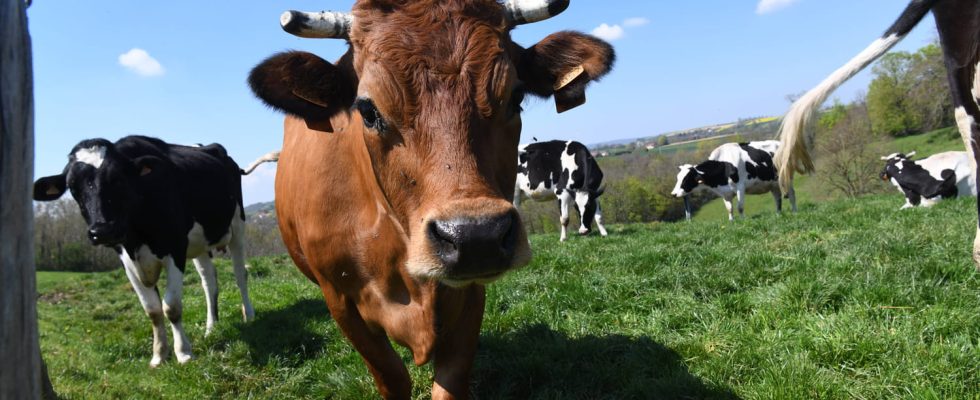Mayenne farmers have developed a product that modifies cow farts and it is very surprising.
Although the subject does not seem to be a priority and is rarely mentioned when we talk about solutions to climate change, cow farts contain methane, a very powerful greenhouse gas. Cows alone represent 12% of greenhouse gas emissions in France. With the emergence of intensive agriculture, methane has become responsible for 30% of the global warming observed since the industrial revolution. It is also the second main danger of the climate with CO2, as recalled in an article from Echoes. The question of methane was particularly at the heart of the debates at Cop 28 which was held in Dubai from November 28 to December 12, 2023.
The “decarbonization” of cow digestion is therefore a current issue in the agricultural sector. Faced with this problem, five dairy farmers from Pays-de-la-Loire who supply the Bel group’s cheese factories (La Vache qui rit, Babybel, Kiri and Boursin) tested a solution to reduce the release of methane caused by cattle. This solution is actually a food supplement called Bovaer. Questioned by France 3, one of the breeders, Yoan Lézé, explains how the food supplement works, which he considers very easy to use: “It comes in powder form, which is mixed with fodder, particularly with ‘grass and corn’. The breeder, based in Quelaines-Saint-Gault in Mayenne, adds that once ingested by ruminants “the supplement blocks enzyme production”.
During this trial carried out on his farm in February and March 2023, the breeder, who is also the vice-president of the Bel de l’Ouest producers association (APBO), noted encouraging results and underlined the small quantity of product needed. He specifies that “a quarter of a teaspoon per day per cow” would be enough to reduce emissions by 30%. He also added that the use of this food supplement has “no effect on the behavior of cows, nor on the quantity and quality of the milk produced”.
A seemingly perfect solution, but which nevertheless has its limits. To be effective, the product must be placed in the feed of ruminants every four hours. A rhythm that can only be controlled when the animals are in the stable. In pastures, it is impossible for breeders to administer the supplement in the diet of their cows. According to France 3, the company behind Bovaer, DSM, is in the process of developing a slow-release product which would allow the food supplement to be used even during grazing periods.
Approved by the European Food Safety Authority (EFSA), as specified in a communicated of the company, the food supplement has been marketed since 2021. According to Simon Bonnet, Milk purchasing director of the Bel group, also interviewed by France 3, this solution “offers immense potential for moving towards a low-carbon dairy sector and offering consumers responsible and sustainable products. And if it is successful, this product could well be found in every barn in the world.
